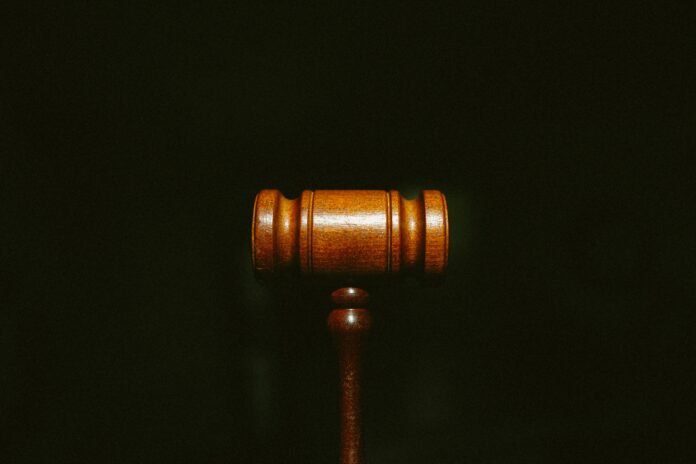Charlottesville, Virginia, sees numerous personal injury claims where victims seek compensation for harm caused by another’s negligence. However, challenges arise when a defendant cannot afford to pay the settlement. In such cases, it’s essential to assess the defendant’s financial situation, including their assets, income, and any applicable insurance policies. Options like negotiating payment plans, garnishing wages, or placing liens on property can provide avenues for receiving compensation over time. Additionally, reviewing the defendant’s insurance coverage may uncover policies that can cover the settlement, reducing financial strain on both parties.
When bankruptcy complicates matters, navigating the legal implications becomes critical. Consulting a Charlottesville personal injury lawyer ensures that victims understand their rights and options in such situations. Lawyers can negotiate on their behalf, explore alternative solutions, and guide them through the complexities of the legal system. With patience, persistence, and professional support, injured parties can work toward securing the compensation they deserve, even in difficult circumstances.
Understanding Compensations for Personal Injuries
In personal injury settlements, an agreement is usually reached between two parties—the injured person and the party at fault. This agreement is often the result of negotiations to avoid a court battle. Once it’s all settled, specific terms are included, such as the payment amount and schedule. However, things can get tricky when the responsible party struggles to meet these requirements.
Evaluating the Financial Situation of the Accused
Before proceeding with the steps in the process, it is critical to assess the accused individual’s financial status thoroughly. It is important to examine their possessions and earnings, as well as any debts they may owe, to gain a better understanding of their financial capabilities. By conducting this evaluation, it becomes possible to ascertain whether they are truly lacking in resources. Suppose there are other factors at play affecting their ability to make payments. There are cases where defendants might be experiencing challenges that could hinder their immediate payment ability.
Exploring Different Payment Options
When faced with a defendant who cannot afford to pay the amount at once, it can be helpful to consider payment arrangements instead of demanding immediate payment upfront. Discussing and agreeing on a payment schedule that spreads out the payments over time gives the defendant a chance to meet their responsibilities gradually. This method is usually less stressful compared to requiring a sum of money in one go, as it takes into account the defendant’s financial circumstances while still guaranteeing that the victim gets compensated in due time.
Contemplating Garnishments or Legal Claims
When a person has assets and doesn’t follow payment terms in situations like this one, mentioning sources of legal actions such as garnishment or liens can be considered a viable solution to resolve the issue at hand. Garnishment concerns redirecting money from salaries or bank accounts to settle the debt directly. Another option is placing a lien on the defendant’s property to secure payment when it’s sold. These choices involve steps to make sure all rules and regulations are followed properly in the given location.
Considering Insurance Policies
Healthcare and insurance assistance can help when defendants have trouble paying settlements. Some defendants have insurance policies that could cover the settlement costs. Checking the defendant’s insurance coverage is important as it might provide a solution without adding pressure. Getting advice from experts can help you navigate the complexities of insurance claims.
Reflections on Bankruptcy Factors
At times, individuals accused of personal injury might declare bankruptcy, which can make enforcing settlements more complicated. Bankruptcy procedures could wipe out debts, thus affecting settlement sums. To comprehend how bankruptcy influences compensation for injuries, seeking advice from professionals is crucial. They provide guidance on how to handle this scenario, making sure that the injured party is well-informed and ready to address the situation.
Seeking Professional Assistance
It’s important to seek help from a professional when dealing with the intricacies of securing a personal injury settlement. You can benefit greatly from hiring a lawyer to help you understand your choices and take action if needed. Lawyers have the knowledge and skills to negotiate settlements, set payment terms, and guide you through the system. This boosts your chances of getting fair compensation for your injuries. In addition, it is a good idea to consult a financial advisor to plan your future if you predict facing monetary hardship.
The Significance of Being Patient and Persistent
Dealing with defendants who can’t pay settlements requires patience and persistence. One must effectively navigate complexities and legal processes, manage expectations, and achieve outcomes with proactive guidance from legal counsel.
In Summary
Dealing with a defendant who can’t afford to settle an injury claim promptly presents hurdles. However, knowing the options at your disposal gives you the tools to handle this tough situation effectively. There are paths to explore, such as looking into payment arrangements or getting legal help. Enlisting the support of experts is crucial as they have the knowledge needed to navigate through the intricacies and ensure you receive the compensation you’re entitled to. Approaching this scenario with patience and determination increases your chances of getting the settlement that’s rightfully yours.
















